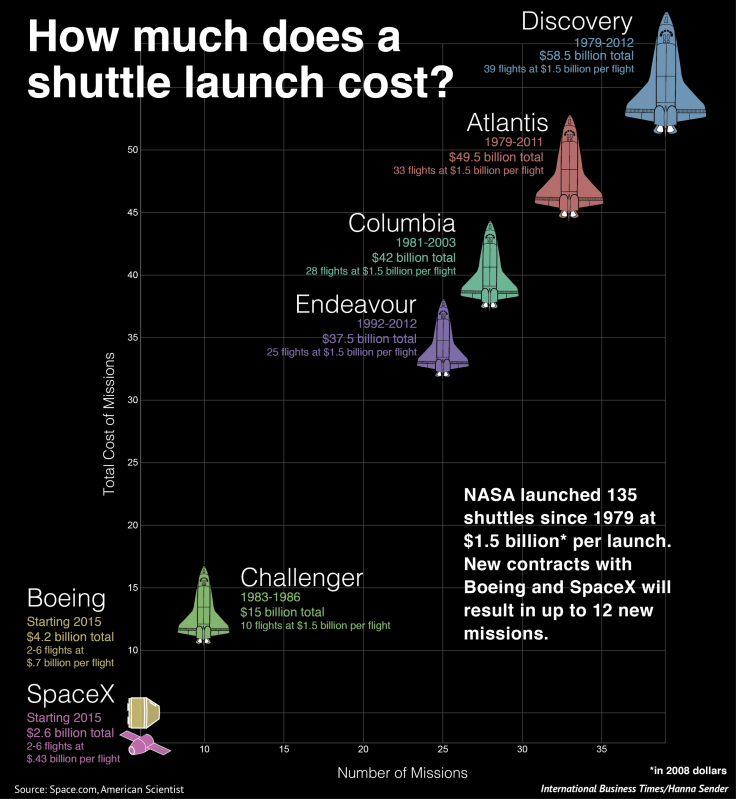Lift Off: NASA Announces Shuttle Launches Return To America, Promise To Be Cheaper [INFOGRAPHIC]

NASA announced the return of manned launches to the U.S. on Tuesday, awarding Boeing and SpaceX contracts to send astronauts to the International Space Station. Boeing received a $4.2 billion contract while SpaceX received a $2.6 billion contract, and based on the early estimates, the next generation of shuttle launches will be much cheaper than their predecessors.
NASA shut down the shuttle program in 2011, with Atlantis completing the final launch on July 8, 2011. While NASA put an average cost per shuttle launch of $450 million, some estimates have a much higher cost per launch. Roger A. Pielke Jr., from the University of Colorado, researched the average cost of NASA’s shuttle program for close to 20 years. With the retirement of the shuttle in 2011, Pielke determined the average cost of the 135 shuttle launches was $1.5 billion.
For the next generation of space taxis, NASA hopes to launch the first spacecraft to the International Space Station in 2017. "The contracts include at least one crewed flight test per company, with at least one NASA astronaut aboard to verify the fully integrated rocket and spacecraft system can launch, maneuver in orbit, and dock to the space station, as well as validate all its systems perform as expected. Once each company’s test program has been completed successfully and its system achieves NASA certification, each contractor will conduct at least two, and as many as six, crewed missions to the space station," reads NASA's statement on the return of manned launches to the U.S. The spacecraft will launch from Florida's Kennedy Space Center.
SpaceX will launch the Dragon v2 to the ISS while Boeing will launch the CST-100 to the space station. If each company completes the maximum number of missions, the cost per launch for Boeing's CST-100 will be $0.7 billion while SpaceX's Dragon v2 will cost $0.43.
© Copyright IBTimes 2024. All rights reserved.






















